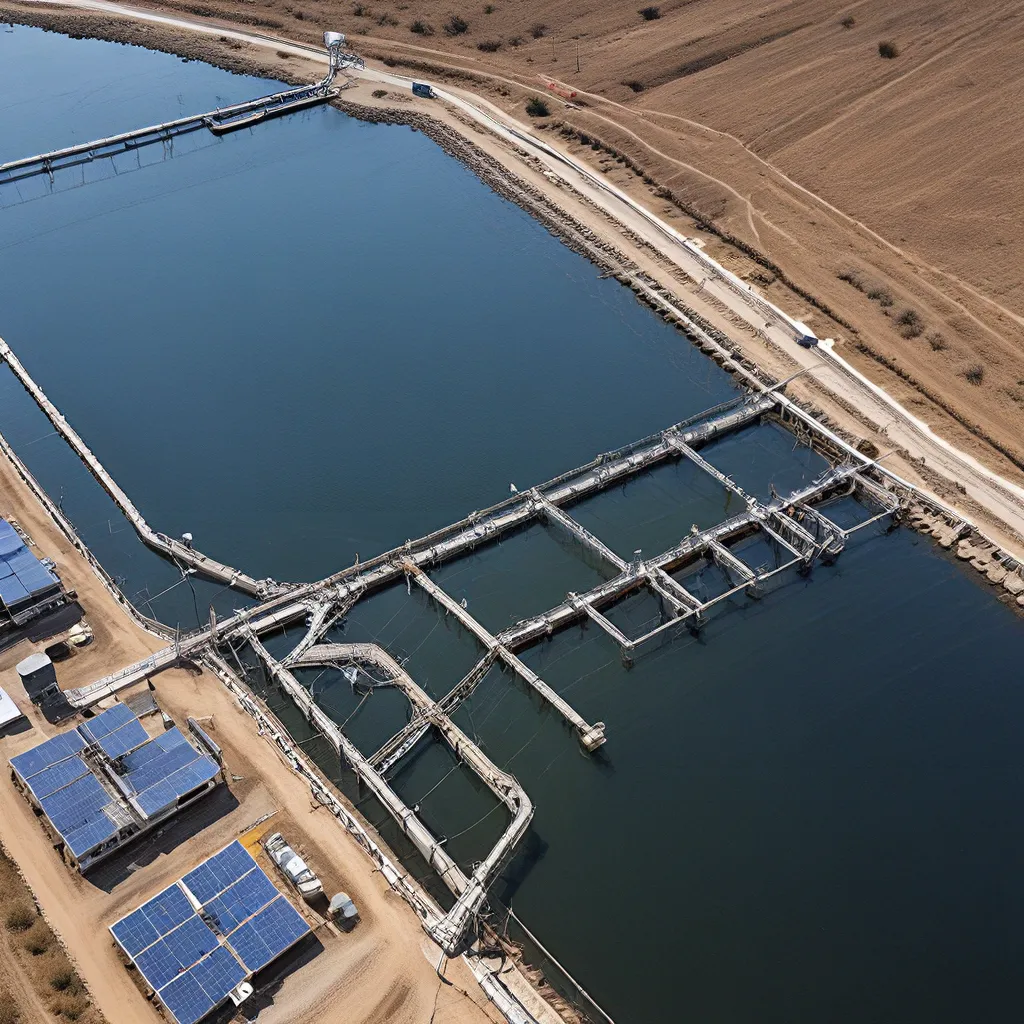
As the world grapples with the pressing challenges of sustainability and environmental preservation, the integration of wastewater treatment and smart grid technologies has emerged as a promising solution. In this article, I’ll explore how we can harness the power of renewable energy sources to revolutionize the way we manage our wastewater and transform it into a valuable resource.
Unlocking the Potential of Wastewater
Wastewater treatment has traditionally been viewed as a necessary but often energy-intensive process. However, a paradigm shift is underway, and we’re now recognizing the vast potential of wastewater as a renewable energy source. By leveraging the organic matter and nutrients present in wastewater, we can generate biogas and even electricity to power our treatment facilities.
One of the key innovations in this field is the Anaerobic Digestion (AD) process. This technology utilizes specialized microorganisms to break down organic matter in the absence of oxygen, producing a methane-rich biogas that can be used to generate electricity or heat. Recent studies have shown that the integration of AD systems with wastewater treatment plants can significantly reduce the energy consumption and carbon footprint of these facilities.
Moreover, the nutrient-rich sludge produced during the wastewater treatment process can be used as a valuable fertilizer for agricultural purposes, further enhancing the sustainability of the entire system. By closing the loop and repurposing the waste streams, we can transform wastewater treatment from an energy-intensive process to a self-sustaining, resource-recovery system.
Embracing Smart Grid Integration
The integration of wastewater treatment with smart grid technology takes this concept to the next level. A smart grid is an electrical grid that uses information and communications technology to improve the efficiency, reliability, and sustainability of electricity generation, transmission, and distribution.
By harnessing the power of Artificial Intelligence (AI) and Internet of Things (IoT) devices, we can optimize the integration of renewable energy sources, such as the biogas produced from wastewater treatment, with the smart grid. This allows us to effectively manage the supply and demand of energy, ensuring that the excess electricity generated from wastewater treatment can be efficiently integrated into the grid.
Moreover, the smart grid’s real-time monitoring and automated control capabilities can help identify and address inefficiencies within the wastewater treatment process, further enhancing its energy efficiency and sustainability. By seamlessly integrating these systems, we can create a closed-loop ecosystem where wastewater is transformed into a renewable energy source that powers the very treatment facilities that produced it.
Overcoming Challenges and Driving Innovation
The integration of wastewater treatment and smart grid technology is not without its challenges. One of the key hurdles is the upfront investment required to implement these advanced systems. However, the long-term cost savings and environmental benefits make a strong case for this investment.
As highlighted in a recent industry interview, companies like Netsol Water are at the forefront of this revolution, using AI and IoT to revolutionize wastewater treatment in India. By leveraging these technologies, they are able to optimize energy efficiency, reduce operating costs, and increase the overall sustainability of their wastewater treatment solutions.
Moreover, ongoing research and development in this field are paving the way for even more innovative solutions. Scientists and engineers are exploring new techniques, such as microbial fuel cells and algae-based systems, to further enhance the energy-producing capabilities of wastewater treatment processes.
As we continue to push the boundaries of what’s possible, it’s important to maintain a balanced and cautious approach. While the potential benefits of integrating wastewater treatment and smart grid technology are significant, there are still uncertainties and ongoing debates around the long-term viability and scalability of some of these solutions. We must carefully evaluate the data, consider multiple perspectives, and remain open to evolving conclusions as our understanding of these complex systems deepens.
Embracing the Future of Sustainable Wastewater Management
In the face of growing environmental concerns and the pressing need for sustainable solutions, the integration of wastewater treatment and smart grid technology holds immense promise. By harnessing the renewable energy potential of wastewater and seamlessly integrating it with the smart grid, we can create a more efficient, resilient, and eco-friendly wastewater management system.
As I explore the possibilities of this transformative approach, I’m excited to see how it can contribute to the broader push for sustainability and environmental stewardship. By continuing to innovate, collaborate, and push the boundaries of what’s possible, I believe we can unlock the full potential of wastewater and pave the way for a more sustainable future.
If you’re interested in learning more about how Alpha Wastewater is leading the charge in this space, I encourage you to explore our website and discover the innovative solutions we’re bringing to the table. Together, we can transform the way we think about wastewater and harness its power to create a more sustainable world.